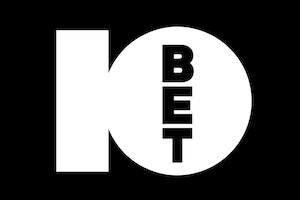Reforms to the gambling industry in the UK affect how you can enjoy playing slot games. On this page find out about changes in legislation and what they mean for you.
Gambling reform has been a hot topic in the UK for the last five years. The Conservative Party promised a complete review of existing legislation as part of their election manifesto in 2019. However, the small matter of a global pandemic, two changes of leader and several cabinet re-shuffles that have seen change at the head of the Department for Digital, Culture, Media and Sport (DCMS) have slowed the process down. In fact, it is questionable whether we will even see a new Gambling Act before the end of this parliament, which will likely be later this year.
But whether it comes in 2024, or falls on the next government, you can be sure that significant changes to gambling regulation are coming. In this article I summarise where we are in the process right now and what the next stages are likely to be.
Background To Reform
Online gambling in the UK is regulated under the Gambling Act of 2005. This piece of legislation, passed by Tony Blair’s Labour government, sets out the regulatory framework under which the industry has thrived for nearly two decades.
The Gambling Act 2005 covers everything from offline lotteries, bingo halls and betting to every kind of online gambling you can think of. It also established the UK Gambling Commission to oversee a new licensing regime which remains in place to this day.
The Gambling Commission had three broad objectives – to prevent gambling being used for criminal activity via fraud and money laundering; to ensure gambling is always fair and safe; and to protect vulnerable people and under 18s from exploitation.
Since these sensible objectives were set out in 2005 the industry has taken off in a way that no one could see coming. Online gambling has proved to be immensely popular, driven by technological advances and multi-billion GBP advertising budgets. For the year to March 2023 online gambling participation stands at 26%, with a gross gaming yield of £6.5 billion.
This is great news for those who enjoy gambling sensibly, and for the exchequer which took £3.38 billion in betting and gaming duties (online and offline) in the year to March 2023.
But of course, with gambling comes the risk of addiction, and as the number of people who gamble has grown, so too has the number of people with a gambling problem. The latest figures from the UK Gambling Commission estimate the problem gambling rate in the UK to be 0.3%, though this figure is often debated and it is though it could be as high as 0.5%.
Increased online gambling activity in the UK has been driven by mobile technology, games and betting formats that aggressively drive repeat behaviour, pervasive advertising and sophisticated marketing tactics designed to elicit higher spends and longer session times from gamblers.
The UK Gambling Commission, politicians and the majority of the public believe that the current framework does not enable the Gambling Commission to fulfil its remit of keeping the industry safe and protecting the vulnerable.
It is against this background that the industry is experiencing the most significant period of reform in 20 years. Some changes have already been brought in by the Gambling Commission in response to consultations with the industry and the public. I will discuss those first. More significant changes are expected via a new Gambling Act, which was previewed through a government white paper presented to parliament in April 2023.
Changes Implemented by the UK Gambling Commission
Before we turn our attention to expectations around the new Gambling Act, here is a brief summary of changes already introduced by the Gambling Commission that have impacted online slots players in the last 5 years.
Removal of Bonus-Buy In Slots (2019)
Bonus buy is a slots betting format that allows players to bypass the base game and buy straight into the big money bonus round, usually a free spins feature, for a one-time stake that is significantly higher than the normal stake. This feature is particularly popular amongst fans of high variance games produced by names like Nolimit City, Big Time Gaming and Hacksaw Gaming.
The Gambling Commission banned the bonus buy feature from online slots in the UK due to the high cost of the bet and the propensity for problem gamblers to use it to chase big wins.
Ban on Credit Cards (April 2020)
Since April 2020 gambling online with credit cards has been banned in the UK. This action followed the publication of research that showed that 22% of those who use credit cards to gamble online were problem gamblers and many stories of gamblers who had racked up £10,000s in debt with credit cards.
Measures To Make Online Slots Safer (October 2021)
From 31st October 2021 a set of measures were introduced that directly targeted online slots play in the UK with the aim of making gameplay less intense and features less misleading in relation to spend and winnings.
These measures are:
- A minimum gap of 2.5 seconds between spins
- Removal of auto-play functions that speed up play
- Remove of any feature that creates an illusion of control over the outcome of a bet
- Removal of audio and visual celebratory features when the win value is less than the stake
- Operators required to display net win or loss and amount of time played for each slots session
Ban On Reverse of Withdrawals (October 2021)
At the same time that measures to slow down slots play were introduced, so too was a new ban on withdrawal reversals. This prevents players from gambling with money that had previously been part of a withdrawal request that had not yet been processed by the operator.
Gambling Reform White Paper
Whilst the UK Gambling Commission has already taken steps to make gambling safer in the digital age, much bigger changes are on the horizon as the much anticipated new Gambling Act draws closer. The first stage of creating new laws is the presentation of a White Paper to parliament which outlines proposals for reform. This was originally scheduled in for the latter part of 2021 but didn’t in fact happen until 27th April 2023.
The paper was presented by Lucy Frazer, Secretary of State for Culture, Media and Sport who said that the legal framework within which the gambling industry operates in the UK would be updated to “protect the most vulnerable while also allowing everyone else to enjoy gambling without harm”.
This is the careful balancing act that any regulator must perform. Right now regulation may not do enough to protect the vulnerable, but if new restrictions on spend and attempts to make products safer go too far, then the government risks pushing players who comfortably enjoy a casual bet onto the black market and damaging the industry.
Alongside online gambling the paper also identifies marketing and advertising, the Gambling Commission’s own power and resources, dispute resolution, children and young adults, and land-based gambling as areas for reform.
We are concerned here with what affects online slots players and there are four proposals that stand-out from the paper.
Right now these are not finalised. They have been put forward in consultations to give interested parties, including the public, industry members and charities, the opportunity to comment. And after that, a gambling bill will be presented to parliament and debated in both houses before it is passed.
So, there is some way to go.
Nevertheless, this is the clearest indication yet of how online gambling will look in the future.
1. Stake Limits On Slots Of Up To £15
The proposals look to bring online slots stakes closer to the offline world of fixed odds betting terminals which have a maximum bet of £2. However, the white paper proposes setting different limits for different age groups. The 18 to 24 group who are seen as most vulnerable, would have a £2 stake limit. But those in older age categories would have a max stake of up to £15.
2. Affordability Checks From £125 Losses Per Month
Perhaps the most controversial area for reform is this one. Affordability checks are currently carried out by operators in an effort to prevent customers spending beyond their means. But they have been found by the DCMS to be inconsistent with a lack of clarity around when they should be implemented. So new mandatory checks are being proposed.
The recommendations are for basic soft checks at £125 losses per month or £500 per year to see if a player has indicators of financial vulnerability like a previous County Court Judgement for example. These checks are described as frictionless as they would be carried out behind the scenes using open-source materials and credit reference agencies. Crucially, no direct contact with the player is required for these checks.
Then, for players losing £1,000 in 24 hours or £2,000 over 90 days, more detailed checks would be carried out. These may involve requests for pay slips and bank statements
Where a player is in the 18 to 24 group, the white paper suggests that checks are carried out at 50% of those loss levels.
3. Incentives To Bet And Wagering Requirements
The area of bonuses and loyalty schemes is also under scrutiny in the white paper. Most pertinently for slots players it is expected that significant limitations will be put on wagering requirements, maybe even a complete ban. This will significantly limit the amount that operators can realistically give away in bonus money without putting themselves at risk.
Bonuses with no wagering requirements but caps on how much can be won may become the new norm, as we’ve seen in offers from sites like Play OJO in recent years.
4. Research, Education and Treatment (RET) Mandatory Levy
Finally, gambling operators are likely to face a mandatory levy, proposed at 1% of gross gambling yield annually, payable to the UK Gambling Commission to fund Research, Education and Treatment. This would replace the current voluntary system whereby operators pay whatever they choose to pay.
Why does that matter to you as a player? Because anything that impacts the gambling firms bottom line can potentially be passed onto the player through lower RTPs and less value from bonuses.
Consultations and Review From Industry Stakeholders
So that’s the White Paper. But what happens now?
A set of proposals has been published and presented to parliament which will likely form the basis of a new gambling act. But before the legislation is drawn up for debate, two rounds of consultations seeking feedback from all industry stakeholders are carried out to review the proposals.
Here are the details.
1st Round of Consultations: July 26th to October 18th 2023
The following areas were covered over summer 2023.
- Direct marketing and cross selling – to give customer greater control over the marketing they receive from gambling operators it is being proposed that customers should have to opt in to receive marketing regarding a particular gambling product type and via a particular channel.
- Remote game design – proposed changes to non-slots products are being looked at which would slow games down to a minimum of 5s break between bets and remove auto play features and anything that could be construed as misleading to customers. These are similar changes as to those that have been made to slots products to make the gameplay less intense.
- Financial risk and vulnerability checks – checks on players financial circumstances in the form of risk assessments and financial vulnerability checks were also included in this consultation. These are the much-debated ‘affordability checks’.
2nd Round of Consultations: 29th November 2023 to 21st February 2024
The second round of consultations seeks feedback on the following area.
- Incentives to bet – proposals to ensure that free spins, bets and bonuses are socially responsible and do not incentivise harmful and excessive gambling. This includes the areas of wagering requirements which may be capped under new laws.
- Responsible gambling tools – proposals to bring in more tools to enable players to manage their spend more easily through deposit and loss limits.
- Transparency of balance protection – not all operators ringfence player balances for protection in case of insolvency. New proposals would require total transparency on this so consumers know whether or not their money is protected.
- Mandatory Research, Education and Treatment (RET) Levy – proposals to make contributions to RET mandatory rather than voluntary.
- Operator data submissions – proposals to harmonise the financial reporting requirements for all licensees. Operators are required to send financial reports from all verticals to the regulator. This would become a mandatory quarterly event.
Likely Impacts and Next Steps
A significant amount of reform is heading our way in the UK. How much it will affect you will depend on how regularly you play and what spend level you play at. If you are a casual slots player who drops £50 per month and stakes just 50p per spin, these changes may not affect you at all. However, if you regularly spend £1,000 per month and like to bet £10 per spin on your favourite slots then you are likely to experience disruption when the new gambling act is finally passed.
When that will be is unclear. Rumours are that a general election in the UK is likely in November 2023. Will legislation be drawn up and passed before that date? It seems unlikely, but time will tell.
In the meantime, keep watching this space for updates on the consultations and reports on what the industry is saying about the proposals.


Mark Wadie is editor at All Slot Sites. He sets the tone for the website, writing much of the content as well as commissioning features, guides and reviews from other experienced journalists.
Our Top Rated Site Picks
UK Licensed | Expert Reviews
Dream Vegas
Duelz Casino
10bet Casino
Kwiff Casino
Luckster
Latest Game Reviews
Reviewed and Tested For Real!










